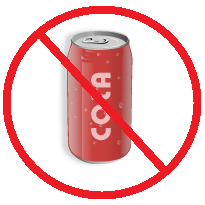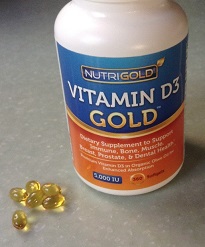- Home
- Brain Health
Brain Health: Supercharge Your Natural Memory
Taking care of your brain health isn't just a good idea — it's one of the smartest moves you can make to protect and sharpen your memory.
Think of your brain as a high-performance engine: it thrives when you give it premium fuel and regular maintenance. Neglect it, and it sputters.
Pair this with learning memory techniques, and you've got a winning formula for a mind that stays sharp and resilient.
If your daily routine involves junk food, a sedentary lifestyle, or skimping on sleep, your brain notices — and your memory pays the price. The good news? You can turn it around.
By weaving a handful of simple, science-backed habits into your life, you can boost your brainpower and keep your memory humming. Here's how to make these changes stick, with practical tips and examples to get you started.
Brain Foods: Fuel for Thought

What you eat directly impacts how well your brain performs. Load up on antioxidant-rich brain foods like blueberries (often dubbed "brain berries" for their memory-boosting powers) and asparagus, which help fight off damaging free radicals.
Lean proteins like salmon or grilled chicken provide the building blocks for neurotransmitters, while healthy fats from eggs, nuts, and avocados keep your brain cells firing smoothly. High-fiber foods — think colorful fruits and veggies like kale or apples — support steady energy levels.
And don't forget water! Dehydration fogs your mind faster than you'd think; aim for at least eight glasses a day. Imagine your brain as a garden: these foods are the sunlight and rain it craves.
Healthy Body Weight: Lighten the Load

Here's a surprising twist — carrying extra weight doesn't just strain your joints; it can shrink your brain. Research links obesity to memory decline, slower learning, and even a higher risk of dementia down the road.
One study found that overweight adults had less gray matter in key brain regions compared to their leaner peers. Scary, right?
But it's not all doom and gloom. Small steps toward a healthy body weight like swapping sugary snacks for a handful of almonds or taking a brisk evening walk can nudge your weight — and your brain health — in the right direction.
Brain Games: Mental Gymnastics

Think of brain games as a gym session for your mind. Just 10 minutes a day can sharpen your memory, focus, and problem-solving skills. Online options abound — try Sudoku for logic or word puzzles for verbal agility.
Even a classic deck of cards can work wonders: play a game of "memory match" by flipping cards and recalling their positions to flex your working memory. And there are hundreds of free online brain games on this site that you can make use of.
The key? Variety. Switching up the games keeps your brain adaptable, like cross-training for an athlete.
Cardio Exercise: Get Moving, Grow Neurons

Intense cardio exercise isn't just for your heart — it's a memory booster too. Activities like running, cycling, or a vigorous dance class spark neurogenesis, the growth of new brain cells, especially in the hippocampus, your memory's command center. Aim for 20-30 minutes, three to four times a week.
Can't hit the gym? No problem. If you're glued to a desk all day, a treadmill desk could be a game-changer.
Studies show even light movement while working enhances memory and attention. Picture this: you're drafting emails and strolling at 2 mph — your brain's quietly thanking you.
Healthy Diet: Ditch the Junk

A diet heavy on fast food, soda, and processed snacks is like pouring sugar syrup into that high-performance engine — it gums up the works. These "empty calories" sap your mental clarity and slow your recall.
Instead, build healthy meals around whole foods: a spinach omelet for breakfast, a quinoa bowl with veggies for lunch. Your brain thrives on steady nourishment, not the rollercoaster of a burger-and-fries binge.
Meditation: Calm Mind, Sharp Memory

Mindfulness meditation isn't just for yogis — it's a memory enhancer too. Studies show it reduces stress (a memory killer) while boosting concentration, working memory, and even emotional resilience.
Try this: sit quietly for 10 minutes, focusing on your breath. When your mind wanders, gently reel it back.
Over time, you'll notice sharper focus — like upgrading your brain's software. Bonus: it's free and portable.
Memory Loss: Protect Your Mind

Bad habits or untreated health issues and other causes of memory loss — like smoking, excessive drinking, or uncontrolled diabetes — can erode your memory faster than aging alone.
Take stock: could late-night scrolling be cutting into your sleep? Are you ignoring that creeping blood pressure? Tackle these now to shield your brain from decline.
For example, cutting back on alcohol might preserve those precious hippocampal cells, lowering your risk of Alzheimer's or other dementias.
Restful Sleep: Recharge Your Brain

Sleep isn't a luxury — it's when your brain sorts and stores the day's memories. Skimp on it, and you'll feel foggy and forgetful. Aim for 7-9 hours of quality shut-eye.
Struggling to get enough restful sleep? Set a consistent bedtime, dim the lights an hour before, and skip that late espresso.
Some folks swear by a white noise machine or herbal tea like chamomile. Think of sleep as your brain's nightly tune-up.
Stress Relief: Keep Calm and Remember On

Chronic stress floods your brain with cortisol, impairing memory, learning, and decision-making.
Ever blanked on a name during a tense moment? That's stress at work.
Start by pinpointing your triggers — maybe it's a packed schedule or constant notifications. Then counter them: a 5-minute walk, deep breathing, or even jotting down worries to offload them. Lower stress means a clearer mind.
Social Interaction: Connect for Clarity

Your brain doesn't just thrive on food and exercise — it craves connection too. Regular social interaction keeps your mind sharp, staving off memory decline and even dementia.
Studies show that people with strong social ties have better cognitive function as they age. Why? Chatting, laughing, and solving problems with others flexes your brain's verbal and emotional circuits.
Try joining a book club, calling a friend weekly, or hosting a game night — think Scrabble or trivia to double the brain boost.
Picture this: over coffee, you debate a plot twist with pals, and your brain's quietly building new neural pathways.
Vitamins & Supplements: Fill the Gaps for Brain Power

Even if your diet's on point, it might not deliver all the nutrients your brain needs to stay sharp. Deficiencies in key vitamins and minerals can quietly sap your memory and focus — think of them as tiny leaks in your mental engine.
Vitamins and supplements can plug those gaps. For instance, a B-complex (B6, B12, and folate) is a powerhouse for combating shortages that impair brain cell communication and memosry retention — low B12 alone is linked to foggy thinking. Omega-3s from fish oil step in when your diet skimps on fatty fish, supporting neuron health and fighting inflammation that dulls cognition.
Magnesium’s a big player too — up to half the population might be short on it due to poor diets or soil depletion. It calms overactive brain signals, aids sleep (a memory must), and fights stress-related decline — low levels can leave you jittery and forgetful.
A multivitamin can act as cheap insurance if your diet's spotty — studies hint it might slow memory decline in older adults with gaps — but if you're eating well, it's likely overkill. Always check with a doctor, but targeting these deficiencies can supercharge your brain's performance — like topping off the tank with premium fuel.
The Memory Technique Bonus

Brain health sets the stage, but memory techniques steal the show. The ancient Greeks and Romans nailed this — think of the "method of loci," where you imagine placing items along a familiar path (like your house) to recall them later.
Picture grocery items on your couch, sink, and stairs — sounds quirky, but it works. Dive deeper into these tricks on my memory skills page for a direct path to a steel-trap mind.
There's no magic bullet for a stellar memory — it's a team effort. Blend these habits into your routine, tweaking as you go.
Maybe you start with a morning jog, then add blueberries to your oatmeal. Over weeks, layer in meditation or a brain game app. Use memory tricks when you need to memmorize specific facts. Consistency beats perfection here!
By nurturing your brain and practicing these skills, you're not just preserving memories — you're building a sharper, more vibrant mind for years to come.
Published: 1/30/2022
Last Updated: 3/01/2025

Newest / Popular
Multiplayer
Board Games
Card & Tile
Concentration
Math / Memory
Puzzles A-M
Puzzles N-Z
Time Mgmt
Word Games
- Retro Flash -
Also:
Bubble Pop
• Solitaire
• Tetris
Checkers
• Mahjong Tiles
•Typing
No sign-up or log-in needed. Just go to a game page and start playing! ![]()
Free Printable Puzzles:
Sudoku • Crosswords • Word Search







